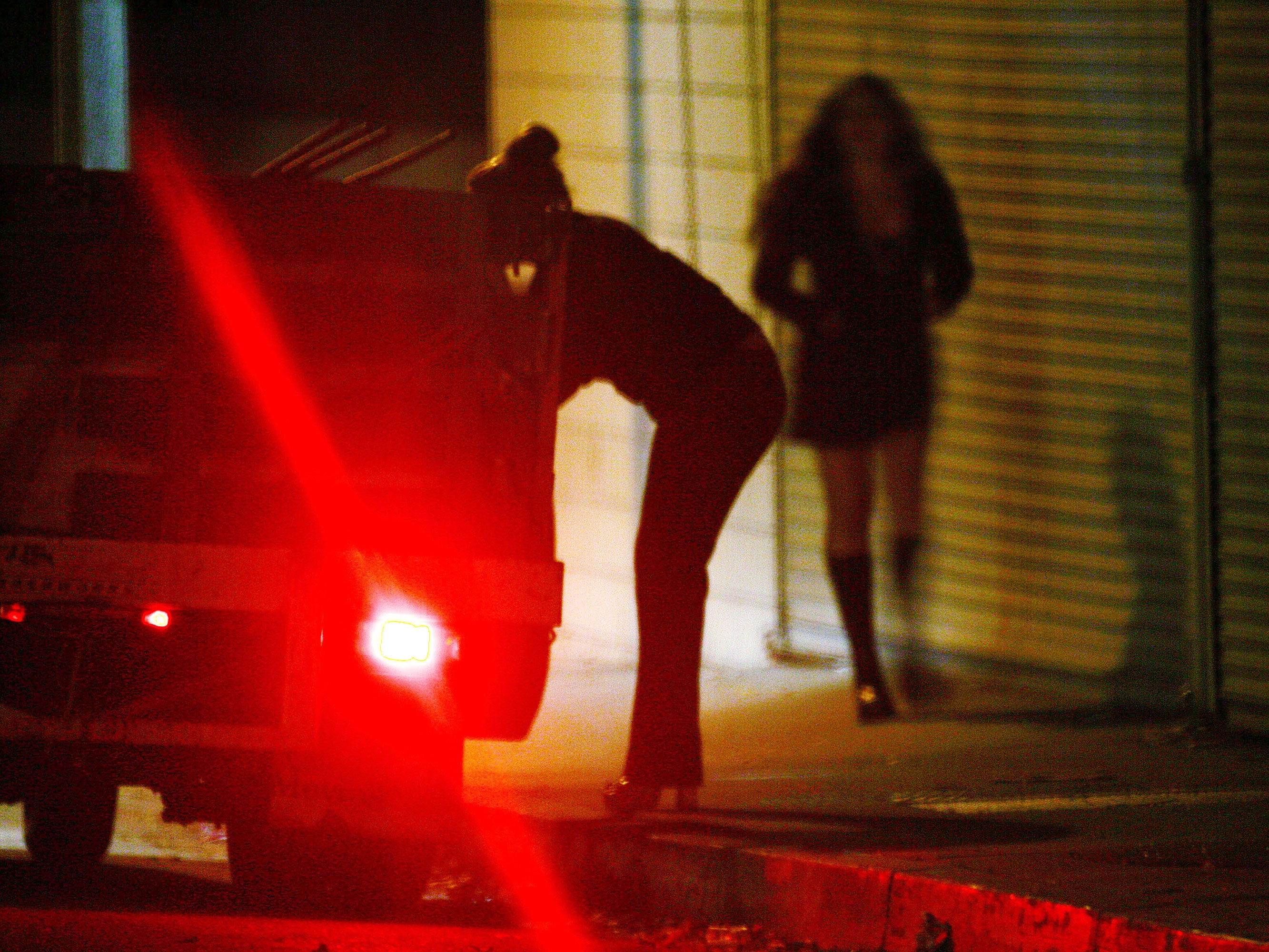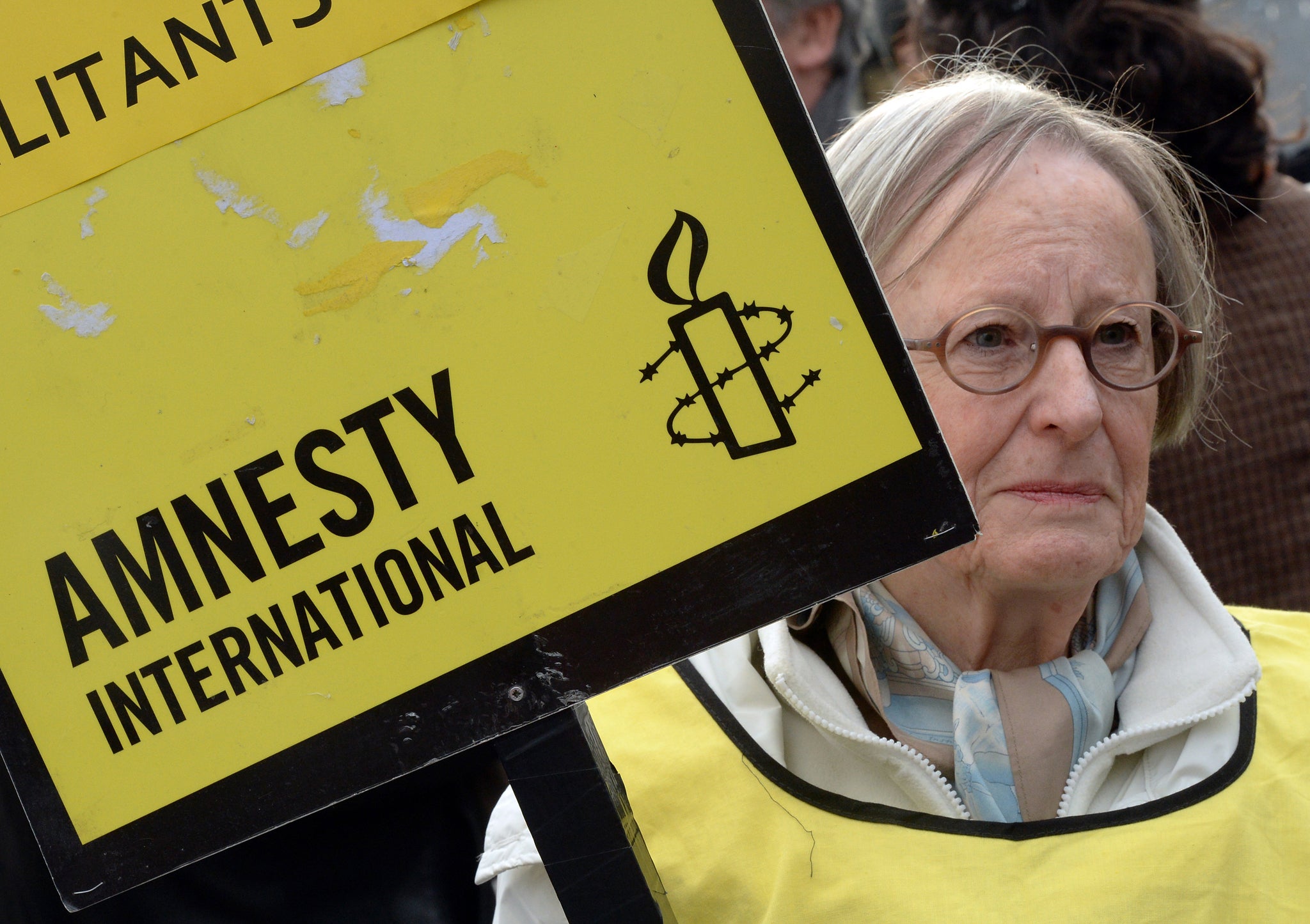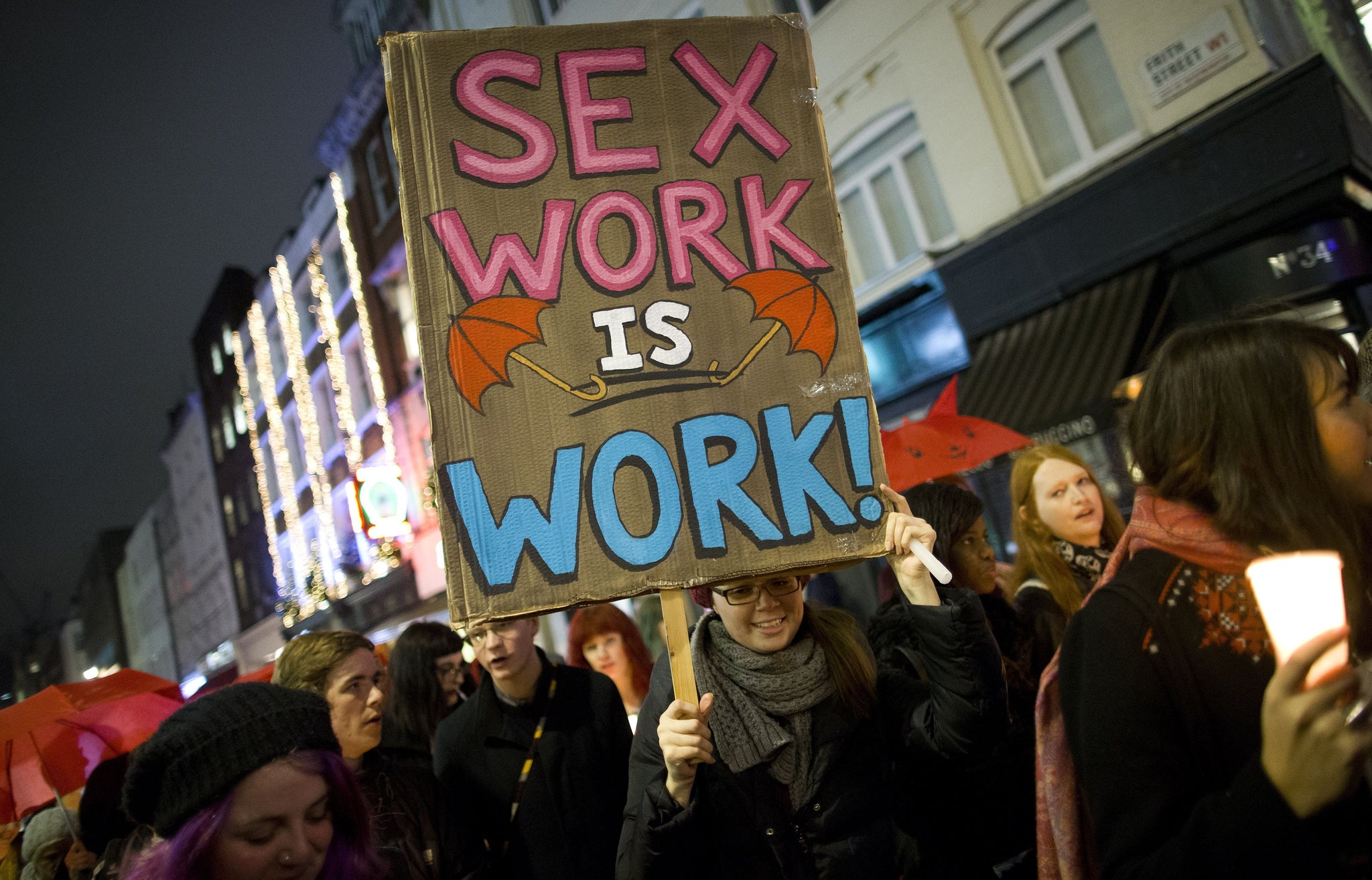Amnesty International backs worldwide decriminalisation of prostitution
Opponents claim the policy 'flies in the face of Amnesty's historical reputation'

Your support helps us to tell the story
From reproductive rights to climate change to Big Tech, The Independent is on the ground when the story is developing. Whether it's investigating the financials of Elon Musk's pro-Trump PAC or producing our latest documentary, 'The A Word', which shines a light on the American women fighting for reproductive rights, we know how important it is to parse out the facts from the messaging.
At such a critical moment in US history, we need reporters on the ground. Your donation allows us to keep sending journalists to speak to both sides of the story.
The Independent is trusted by Americans across the entire political spectrum. And unlike many other quality news outlets, we choose not to lock Americans out of our reporting and analysis with paywalls. We believe quality journalism should be available to everyone, paid for by those who can afford it.
Your support makes all the difference.Human rights group Amnesty International has voted to support the decriminalisation of prostitution at their biennial International Council Meeting.
Delegates from around the world gathered in Dublin for the meeting, and voted to adopt a resolution that will allow the organisation to develop and adopt a pro-decriminalisation policy.
The resolution recommends that the full decriminalisation of all aspects of consensual sex work is supported by the organisation.
Salil Shetty, Amnesty's Secretary General, said about the resolution: "We recognise that this critical human rights issue is hugely complex and that is why we have addressed this issue from the perspective of international human rights standards."

"We also consulted with our global movement to take on board different views from around the world."
Amnesty International now joins a host of other groups in their support for decriminalisation, including the World Health Organisation, the United Nations AIDS programme UNAIDS, and leading medical journal The Lancet.
These groups see the stigma and criminalisation that surrounds prostitution as roadblocks to stopping abuse, trafficking and the spread of diseases like HIV and AIDS.
Some proponents also see the decriminalisation of prostitution as simply an extension of the idea that two consenting adults should be able to have sex without the interference of the government.
However, there is opposition to the idea, most prominently from actors like Lena Dunham, Meryl Streep, Kate Winslet and many others.
They were included in a list of signatories on a letter to Amnesty International written by the Coalition Against Trafficking in Women.
It said that the decriminalisation policy "flies in the face of [Amnesty International's] historical reputation."
It also said the organisation's proposal was "incomprehensible", and said the decriminalisation of prostitution would increase the rates of trafficking and abuse.

In its statement, Amnesty makes it clear that it remains opposed to human trafficking, which it says should be criminalised "as a matter of international law."
It also calls prostitution "a form of violence against women and an affront to human dignity".
Much has been made of the 'Swedish model' of prostitution legislation - in which selling sex is legal, but buying it is punishable by hefty fines or prison sentences up to six months.
It is argued that legalising the selling of sex has the advantage of removing the stigma and criminalisation of prostitutes, most of whom are in a less powerful position than their clients, while curbing the demand for the industry.
However, its opponents argue that increasing the penalties against buyers of sex pushes prostitution underground, due to the fear of being caught.
Prostitutes in Sweden still face stigma - some struggle with eviction by landlords, who can be liable to pimping charges if prostitution takes place in their properties.
Amnesty says its policy will call on countries "to ensure that sex workers enjoy full and equal legal protection from explotation, trafficking and violence."
Strong arguments exist on both sides, but can hinge on whether their proponents believe that prostitution should be treated as a job like any other, or whether it should be discouraged.
Britain's prostitution laws are complicated - the acts of buying or selling sex are legal, but pimping, brothel-keeping and kerb-crawling are against the law.
Join our commenting forum
Join thought-provoking conversations, follow other Independent readers and see their replies
Comments